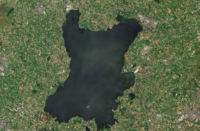Socialist Voice articles last month by Jimmy Doran and Niall Cullinane provided the basis of an interesting discussion in the Greater Belfast Branch of the CPI. The articles were about the January 18th “Generalised Strike Action” across the North, directed against the British Tory Secretary of State for withholding funding for public sector pay to pressure the DUP back into the NI Executive. The articles and the Branch discussion have prompted me to make this contribution to what is a critical and recurring theme in Socialist Voice: the role of trade unions in the present struggle for socialism in Ireland.
In his article Jimmy Doran correctly identifies “what is right and ultimately best” for trade unionists, their families and local communities: “a new, independent, socialist Ireland”. However, how to get there requires more than just the rhetoric of urging trade unions to be on “the right side of history”, “to decolonise their minds”, and “to forget outdated prejudices”. It is essential to have not just a clear end goal but also medium-term strategies and tactics which require continuous review through analysis of actual experiences of class struggle.
Niall Cullinane’s article includes a useful discussion of strategy and tactics. He notes that “the reason why Northern Irish workers could strike through simple majority voting is because the Assembly refused to implement the Tories’ 2016 Trade Union Act.” Going on to argue that local politicians did so “to avoid upsetting the union constituency upon which both power blocs draw”. He asks: “Might unions exploit this reliance more?”
While the explanation of why anti-union legislation was blocked requires further exploration, it raises a key strategic question for the trade union movement in the North: how should the trade union movement relate to the existing political arrangements and balance of political power both in Stormont and Westminster? By extension, for communists, the question becomes how to develop the political relationships of the trade union movement in a way that contributes to effectively addressing the possibilities and pitfalls of building a class-conscious, anti-imperialist movement in a still-divided Ireland?
There were those who called on the January 18th strike to oppose the DUP, whose return to the Assembly would release the money being withheld by the Secretary of State. The trade unions, however, insisted that it was the Tory Secretary of State that was the target of the strike action. In doing so Niall Cullinane argues that: “unions vacated a political space during a crisis and hung onto the coattails of politicians.”
That would seem to suggest that the trade unions have a clear political presence within the fluid, complex and divisive political space available to them in the North. I don’t see that as being the case. Far from hanging onto the coat-tails of politicians, the trade unions, in furthering their members’ disputes over wages and conditions, with widespread public support, were taking on the British Tory government and dragging local politicians behind them. All parties in the Assembly supported the strike action and it can certainly be argued that the industrial action helped create the political climate which led to the return of the Assembly.
In leafletting the Belfast rally in support of January 18th, the Greater Belfast CPI Branch called on NIC-ICTU and the trades councils to capitalise on the success of the day to reinvigorate the “Workers Demand Better” campaign. For reasons that need to be examined, that campaign had not gained any real traction in the previous year and the prospects for it doing so now seem slight. But the strategy of building a campaign capable of mobilising and organising in mutual support activists from trade unions and local communities still looks the best way to continue the spirit of January 18th.
Like that “Generalised Strike”, such an activist base would not be constrained by the politics of Stormont or Westminster but push beyond them generating new forms of class-based, united front politics from below. That politics would not only put pressure on all the political parties but also constrain any moves towards the trade union politics of “partnership” that in the past did so much to undermine Irish trade union activism.






